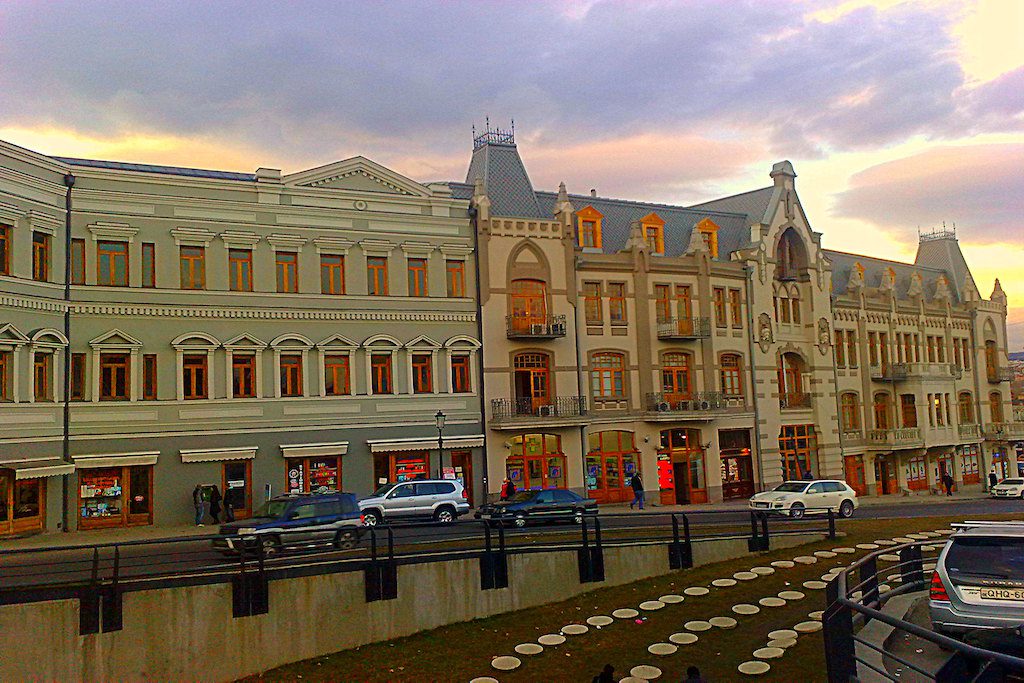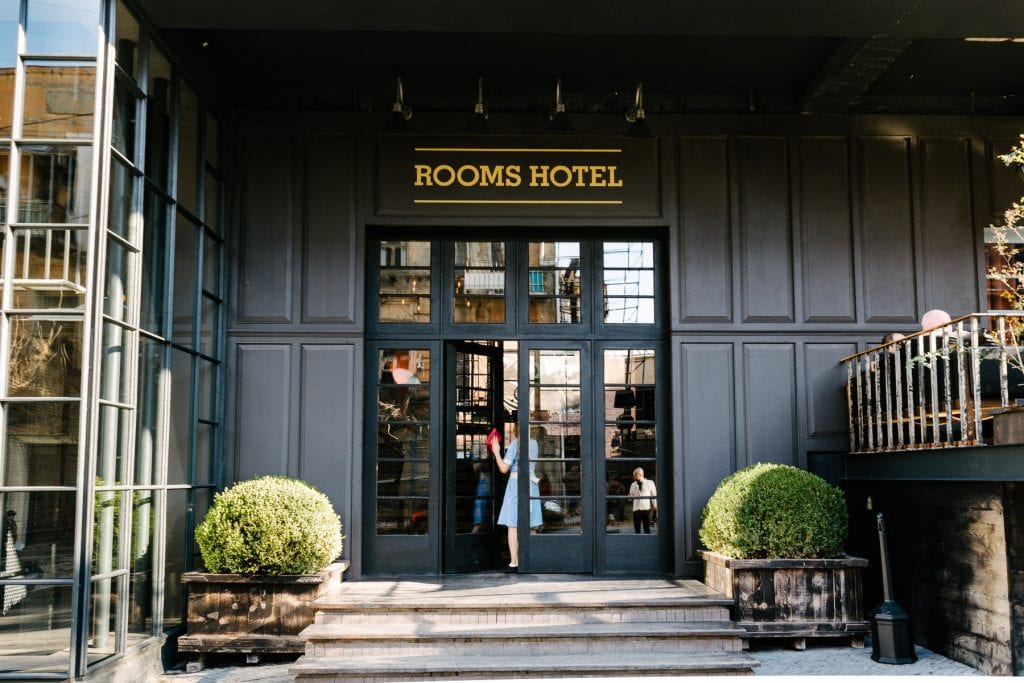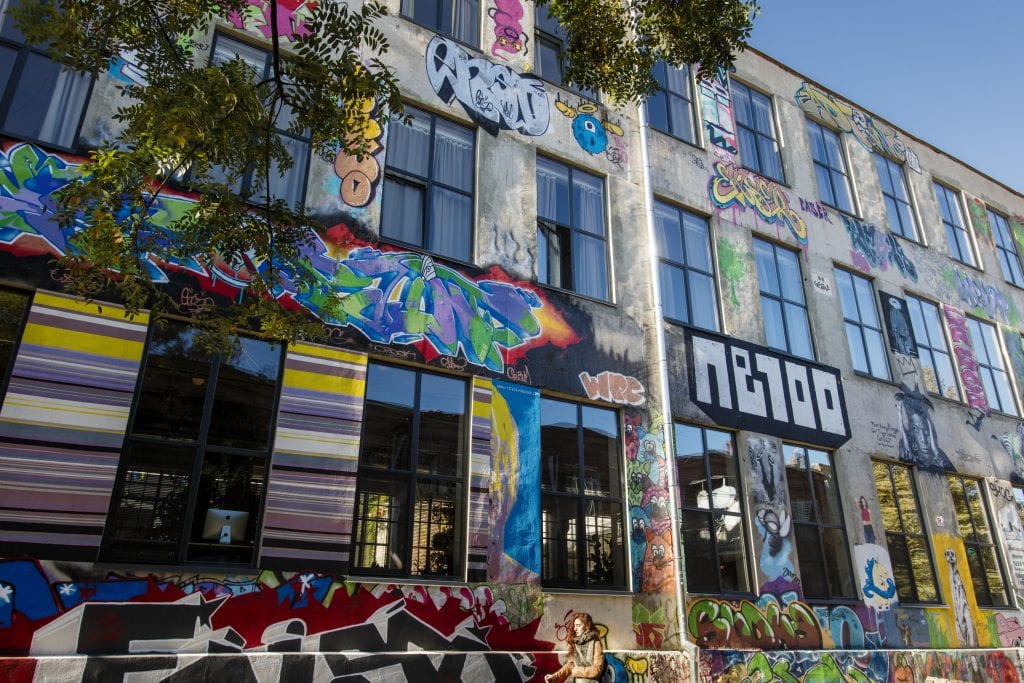Skift Take
Georgia's tourism sector has been a striking success story over the last decade. While recent tensions with Russia threaten to upset the progress, they may also serve as the impetus for the country's tourism industry to become less reliant on its neighbor.
A little over 10 years ago, most travelers would not have considered going on vacation in Georgia, which shares its northern border with Russia. At the time, the nation was best known internationally for the war it had fought in 2008 against Russia over the provinces of South Ossetia and Abkhazia.
In just a decade, however, the nation has gone from little-known former Soviet republic to the place where all your hip friends are going on vacation. The country was host to 8.7 million international visits in 2018 — up from 3.1 million in 2011 — and tourism accounts for a third of its total GDP. Media coverage has focused on its picturesque mountain ranges, adventurous skiing, a happening arts scene in its capital Tbilisi, and a natural wine tradition.
But despite its rapid success in building a thriving tourism sector, the country finds itself in the middle of escalating tensions with its powerful neighbor. Russian President Vladimir Putin suspended Russian flights to Georgia last month effective July 8, the start of the peak tourist season. He also asked that Russian tourists currently in Georgia leave, that Russian tour operators cancel upcoming trips, and later added a ban on Georgian airlines entering Russian airspace.
The move followed heated protests that took place in Georgia’s capital, sparked by a Russian MP’s appearance in Georgia’s parliament. A Russian news crew was reportedly attacked during the protests, though not seriously injured according to the BBC. A statement from the Kremlin said the flight suspension was “to ensure Russia’s national security and protect Russian nationals from criminal and other unlawful activities.”
But as bad as those headlines sound, this moment could be just what Georgia’s tourism industry needs to refocus its efforts on attracting high-value travelers from nations other than its tumultuous neighbor.
Roughly 20 percent of Georgia’s tourist arrivals come from Russian travelers, according to government figures. Because of that, some view Putin’s actions as the first time Russia has used Georgia’s successful tourism industry as a vehicle for unofficial sanctions, as they’ve historically done with goods like wine. That gives Georgia plenty of reason kick its inbound diversification efforts into high gear.
The Georgia National Tourism Administration (GNTA) said in a statement to Skift that while Russian tourists account for a healthy slice of the country’s inbound market, “the key priority for the country is quality over quantity, meaning that higher emphasis is placed on attracting high-spending travelers from Europe, Asia, Middle East, and the USA, who will stay longer in the country and spend more.” They added that while Georgia remains safe and welcoming for Russians, they are focusing their efforts on launching ad campaigns with western media partners including CNN and Bloomberg as well as increasing direct flights from 12 new European destinations including Frankfurt, Nice, and Stockholm.
Maia Sidamonidze is the head of the Georgian Tourism Network, a member association that represents the tourism industry and private sector interests in Georgia. From 2010 to 2013, she also worked for the GNTA, during a time when the government enacted a series of steps to boost the sector, including infrastructure building, marketing campaigns, aviation deals, visa simplification, and rehabilitating Soviet-era resorts.
Inbound tourism from Russia has spiked in recent years, she said, in part because of effective marketing campaigns as well as the fact that a visa requirement was dropped for Russian tourists in 2011. While the short-term economic impact of losing a fifth of the inbound market can’t be denied — and she does worry somewhat about it hurting international perception of Georgia — the hope is to actively welcome more high-spending visitors from regions like Europe, the Gulf states, and China, and the other 100 nations that can visit Georgia visa-free.
“Georgia is independent country striving for freedom, trying to become a member of Europe, trying to be a Westernized, modernized country, and of course this is against Russian government interests,” Sidamonidze said. “First of all we want to overcome the crisis, but also diversify our target market and not be dependent on the Russian market specifically.”
Valeri Chekheria is the CEO of the Adjara Group, the largest hospitality company in Georgia, with five hotels, seven restaurants, and three more hotels in progress. In 2010, two years after the war, the group opened the first franchise of an international hotel chain, a Holiday Inn, at a time when a recognizable brand was needed to earn the trust of wary travelers. Soon after, Adjara launched the Rooms Hotel brand, which has become synonymous with Georgia’s burgeoning hipster reputation — its properties are included under the revered Design Hotels umbrella — along with concepts like the high end hostel and cultural space, Fabrika.
Chekheria said since the flight suspensions were announced, Adjara’s properties have experienced cancellations for the summer season, but he notes that many of those Russian travelers asked that their bookings be honored in the future when flight services resume. It should also be noted that over 50,000 people had signed a Change.org petition objecting to the Kremlin’s flight ban. While there is no doubt his business will take a hit in the short term, Chekheria says he is not surprised this day has come.
“We were always expecting this at some point,” Chekheria said. “I have always said, we have lots of Russian guests but you’ll never know when one day the [Russian] president is going to wake up and stop this traveling.”
Chekheria is less concerned about the effect the Russian ban will have on international perception; he cites vocal support from embassies such as Germany, the United States and the United Kingdom who have all encouraged their citizens to visit. He says this moment is an opportunity for the sector to learn how to attract more visitors from other markets.
“It’s going to be good for us. We will [learn] how to work more in the European markets, how to attract them, and what kind of services we have to include here.”
The Daily Newsletter
Our daily coverage of the global travel industry. Written by editors and analysts from across Skift’s brands.
Have a confidential tip for Skift? Get in touch
Tags: Design Hotels, georgia, russia
Photo credit: Tbilisi, Georgia's capital. Max Benidze / Flickr


